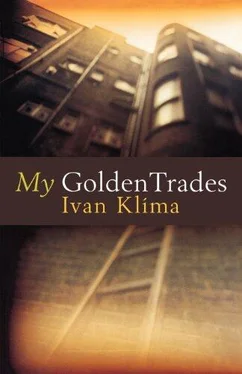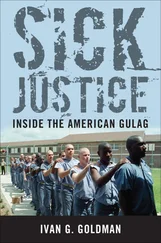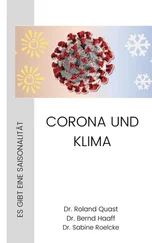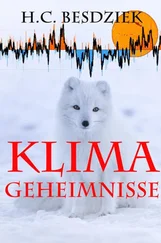Ivan Klima - My Golden Trades
Здесь есть возможность читать онлайн «Ivan Klima - My Golden Trades» весь текст электронной книги совершенно бесплатно (целиком полную версию без сокращений). В некоторых случаях можно слушать аудио, скачать через торрент в формате fb2 и присутствует краткое содержание. Год выпуска: 1998, Издательство: Granta UK, Жанр: Современная проза, на английском языке. Описание произведения, (предисловие) а так же отзывы посетителей доступны на портале библиотеки ЛибКат.
- Название:My Golden Trades
- Автор:
- Издательство:Granta UK
- Жанр:
- Год:1998
- ISBN:нет данных
- Рейтинг книги:4 / 5. Голосов: 1
-
Избранное:Добавить в избранное
- Отзывы:
-
Ваша оценка:
- 80
- 1
- 2
- 3
- 4
- 5
My Golden Trades: краткое содержание, описание и аннотация
Предлагаем к чтению аннотацию, описание, краткое содержание или предисловие (зависит от того, что написал сам автор книги «My Golden Trades»). Если вы не нашли необходимую информацию о книге — напишите в комментариях, мы постараемся отыскать её.
My Golden Trades — читать онлайн бесплатно полную книгу (весь текст) целиком
Ниже представлен текст книги, разбитый по страницам. Система сохранения места последней прочитанной страницы, позволяет с удобством читать онлайн бесплатно книгу «My Golden Trades», без необходимости каждый раз заново искать на чём Вы остановились. Поставьте закладку, и сможете в любой момент перейти на страницу, на которой закончили чтение.
Интервал:
Закладка:
Back home I took off my clothes and threw them over the back of a chair. (Tomorrow I would have to hammer a few nails, at least, into the wall to hang them on.) It was only nine-thirty, but I fell asleep at once.
I was awakened by a rumbling clatter. The windows were shaking as though an air-raid was going on. I opened my eyes and looked around a room empty of people and things.
Where had everyone gone?
They'd been transported to Poland. Only I remained behind, forgotten, waiting for the man bearing my death sentence to enter.
The rumbling kept up, and I became fully awake. Through the open window I saw one of the enormous transport trucks disappearing around a corner. A bell in the tower struck twice. It might have been two in the morning, but when I looked at my watch, it was only half-past eleven.
With a sense of relief, I realized that the transportations had long since departed and it was unlikely that someone would come through the door to inform me that my presence was a burden to be removed from the world without delay. Those to whom I was a nuisance at present were certainly satisfied that I was now precisely where I was.
Another truck roared by outside. I got up and closed the window. One of the ancient panes of glass in it cracked with a high, rasping sound. Midnight struck.
I looked into the darkness in front of me. Now that I had closed the window, the air was filled with the room's own foul exhalations. My body felt broken and I was aware of a slight pain near my heart. I desperately wanted to fall asleep again, but instead, I kept hearing the sounds from the street and a silent rumbling in the bowels of the old building.
We all have our own castle whose gates we long to pass through. Most of the time, when we find them closed, we go off in another direction and enter doors that someone else has opened for us or through which we have no wish to pass.
Stone
WE WERE DIGGING a hole for a stone pillar in a clearing near the logging road. From the first blow of the pick, the ground had resisted. It was close to noon and a light breeze made the air tremble in the heat of the sun. After an hour's hard work we had only managed to make a shallow depression in the earth. We had hoped that once we'd made it through the tangle of tree roots in the top layer of soil the work would get easier. Instead, we had hit hardened clay full of chunks of solid rock.
My young boss, understandably, was stronger than I was, and more skillful, so he took the pick out of my hands and, with regular, rhythmic blows, tried to subdue the rock bit by bit. But a dull pick is no substitute for a pneumatic drill.
Do we have to put our stone pillar exactly here? I wondered. Perhaps the ground a little to one side would be softer.
'This is the best place for it.'
My knowledge of the work I was doing was so slight that I couldn't judge whether the location he chose was really the best of several possibilities, or whether he was simply revealing more of the stubbornness he had demonstrated several times over the past few days.
Our stone pillar was still lying on the floor of the station wagon. Perhaps anticipating the bedrock, the surveyor had selected the smallest of the stone makers we had, but even so it was just a little under three-quarters of a metre long. And we had to lay the mark-stone tablet underneath it. And between the mark-stone and the stone pillar there had to be a layer of soil at least twenty centimetres thick. Though it lay buried under a metre of earth, the mark-stone was the most important part of the trigonometrical station. While the stone pillar above it was often damaged, the mark-stone usually remained unmoved. There were crosses on both the mark-stone and the pillar, and they had to be aligned. Thus the position of the pillar could always be reset with reference to the mark-stone beneath it.
In the past, they used to build tall wooden constructions over the stone pillar. I remember towers so high it made me dizzy to look up at them. They don't build those towers any more; there aren't the carpenters to make them. Adjacent to the stone pillar, at a distance indicated by a notch on the handle of my pick, a concrete base had to be set in the ground to which a pole was fixed; at the trigonometrical point, the pole was red and white; at the intermediate points, black and white. Wherever there was a threat of damage, we put up two poles. There was always the threat of damage, even though it was an offence to tamper with the poles. In woods, seldom had surveyors bothered to erect markers; they would simply paint arrows on the nearest tree, one pointing left, the other right. And because over the years the stone pillar would become buried in earth or overgrown with grass or bushes, we would have to poke around in the undergrowth with a metal probe until we found it. When we had uncovered the
top of it, Kos would pull out the spirit-level while I would anxiously try to determine if the pillar had been moved.
If the bubble deviated from its circular centre-point so much as a millimetre in any direction, the pillar would have to be dug up, realigned with the mark-stone, and relaid.
Once, when the stone was out to a barely perceptible degree, I suggested we might simply dig around it to make it level. From the expression on the surveyor's face, however, I realized that my idea was sacrilegious.
It was my turn to take the pick again. Trying to emulate the surveyor's technique I threw myself at the rock as though deranged, but I managed only to chip away a few tiny fragments. Drops of my sweat fell on the ground and were quickly soaked up by the dry dust.
I crawled out of the trench and went to the car, where I had left some warmish water in a bottle. I took a drink and then pulled a hammer and chisel from under the car seat.
If only we had decent tools.
The surveyor now took his turn. The rock sang like a stone bell.
I sat down on the fresh pile of broken rock. I didn't have the energy to walk the short distance into the shade.
The bell rang insistently, summoning the prisoners.
I had tried to position myself in one of the back ranks, but the others had pushed me into the front row. From the right, where they were ringing the bell, a group of supervisors and overseers in yellowish uniforms and red arm-bands approached. The officer leading the group, turned to me. Don't like the look of this one, he said. Two weeks of special treatment.
They grabbed me and led back to the wooden barracks. I was not surprised; not even frightened. I knew that,
eventually, I would meet everyone I loved in those special treatment barracks. They were merely leading me off to meet my fate, my story. I even looked forward to new encounters.
The surveyor jumped out of the trench, peeled off the rust-coloured sweater which he almost never removed, and measured the results of our work so far with a folding ruler. We were two-thirds finished. He handed me the hammer and the chisel: it was my turn to make the bell ring. When I had prised away an especially large chunk of rock and tossed it out of the pit, I discovered nothing underneath it but a layer of earth mixed with small stones.
After half an hour, we had set the mark-stone in the bottom of the hole and jockeyed it into position so that the bubble stood motionless in the centre of the level. The surveyor set up a tripod over the pit and dropped a plumb-line from it. Then he balanced himself over the hole like an acrobat and I helped him shift the tripod until the plumb-line pointed to the centre of the crossed lines. We measured the depth of the mark-stone below ground level and then very carefully, so as not to knock over the tripod, we filled earth in over the plate, packed it down and measured the height again. Only now could the stone pillar be set over it.
Читать дальшеИнтервал:
Закладка:
Похожие книги на «My Golden Trades»
Представляем Вашему вниманию похожие книги на «My Golden Trades» списком для выбора. Мы отобрали схожую по названию и смыслу литературу в надежде предоставить читателям больше вариантов отыскать новые, интересные, ещё непрочитанные произведения.
Обсуждение, отзывы о книге «My Golden Trades» и просто собственные мнения читателей. Оставьте ваши комментарии, напишите, что Вы думаете о произведении, его смысле или главных героях. Укажите что конкретно понравилось, а что нет, и почему Вы так считаете.












